

Randall Snyder
Crescent City Joys, for saxophone ensemble
Short instrumentation: 0 0 0 0 - 0 0 0 0
Duration: 6'
Solos:
2× soprano saxophone in Bb
4× alto saxophone in Eb
2× tenor saxophone in Bb
2× baritone saxophone in Eb
sopranino saxophone in Eb
bass saxophone in Bb
Crescent City Joys, for saxophone ensemble
Printed/Digital
Translation, reprints and more
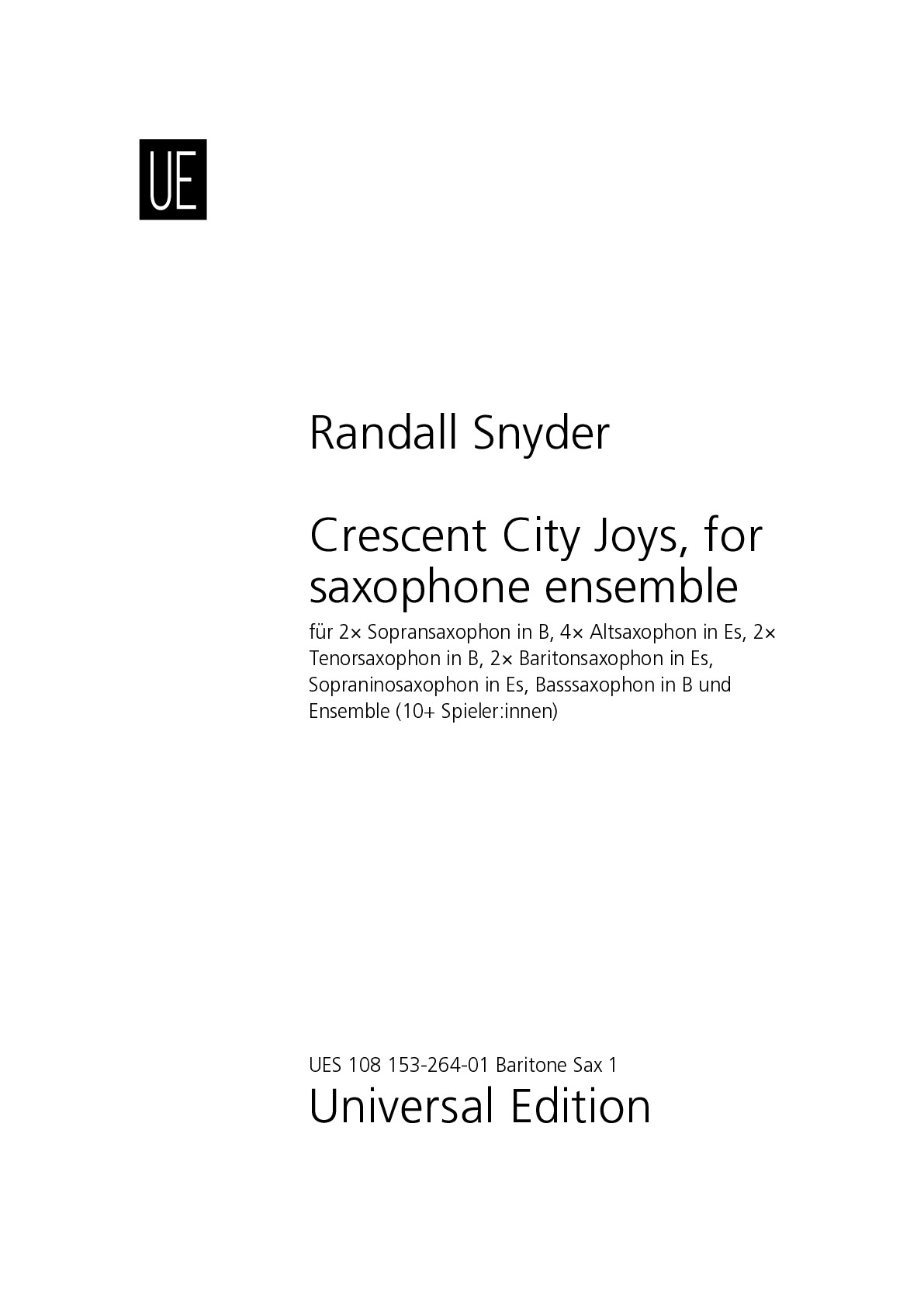
Randall Snyder
10. Baritonsaxophon in Es (Crescent City Joys, for saxophone ensemble)Type: Solostimme(n)
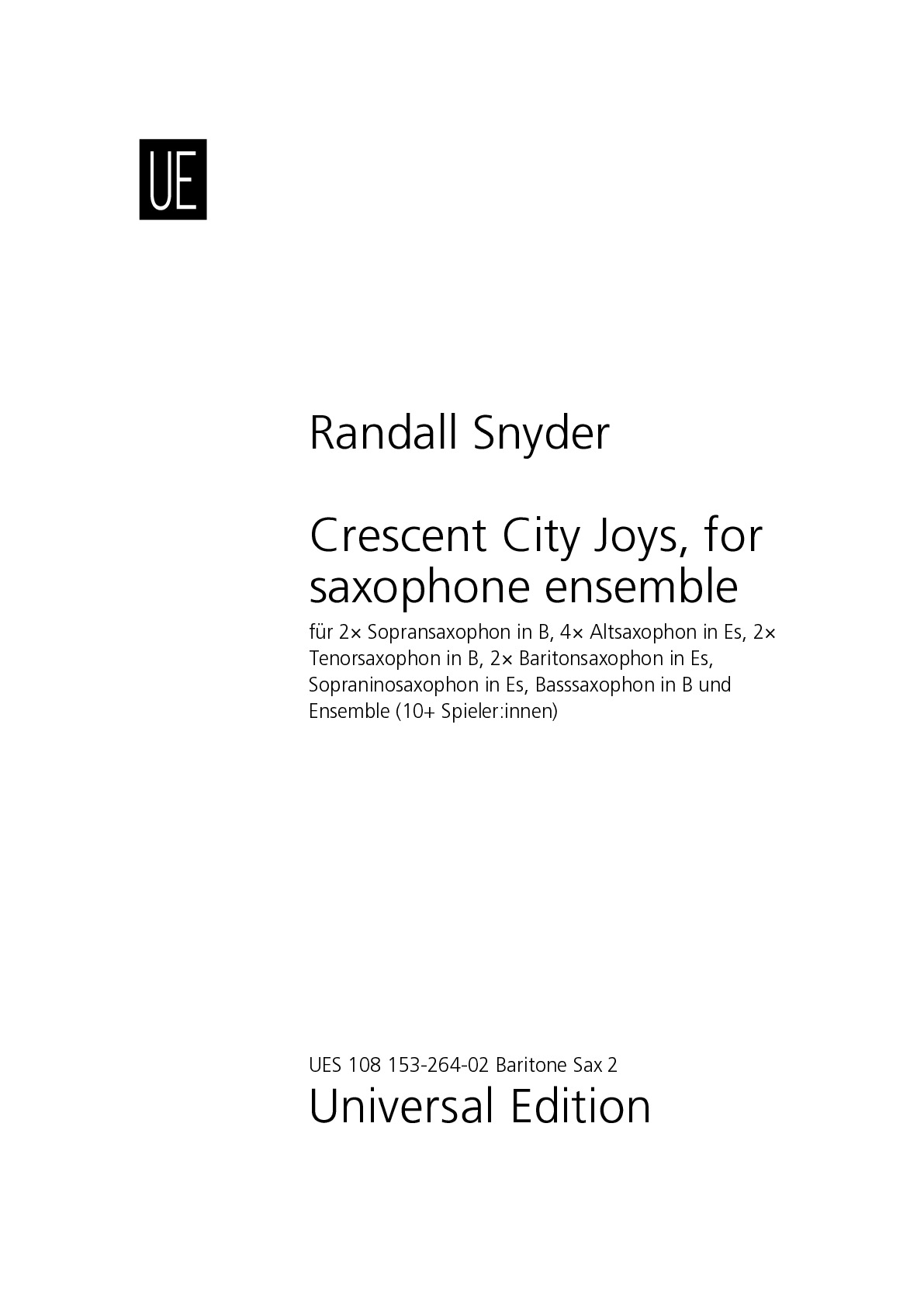
Randall Snyder
11. Baritonsaxophon in Es (Crescent City Joys, for saxophone ensemble)Type: Solostimme(n)
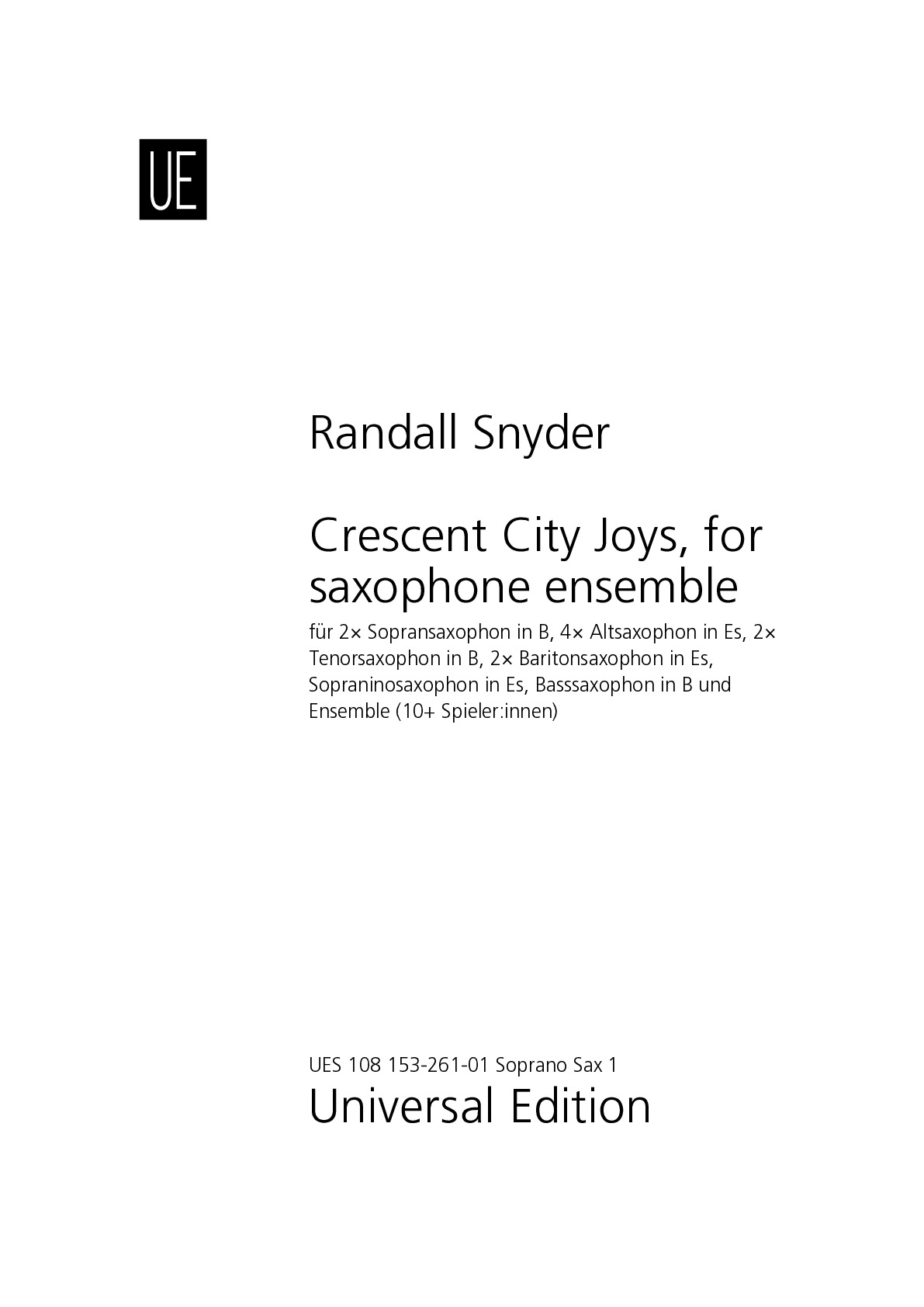
Randall Snyder
2. Sopransaxophon in B (Crescent City Joys, for saxophone ensemble)Type: Solostimme(n)
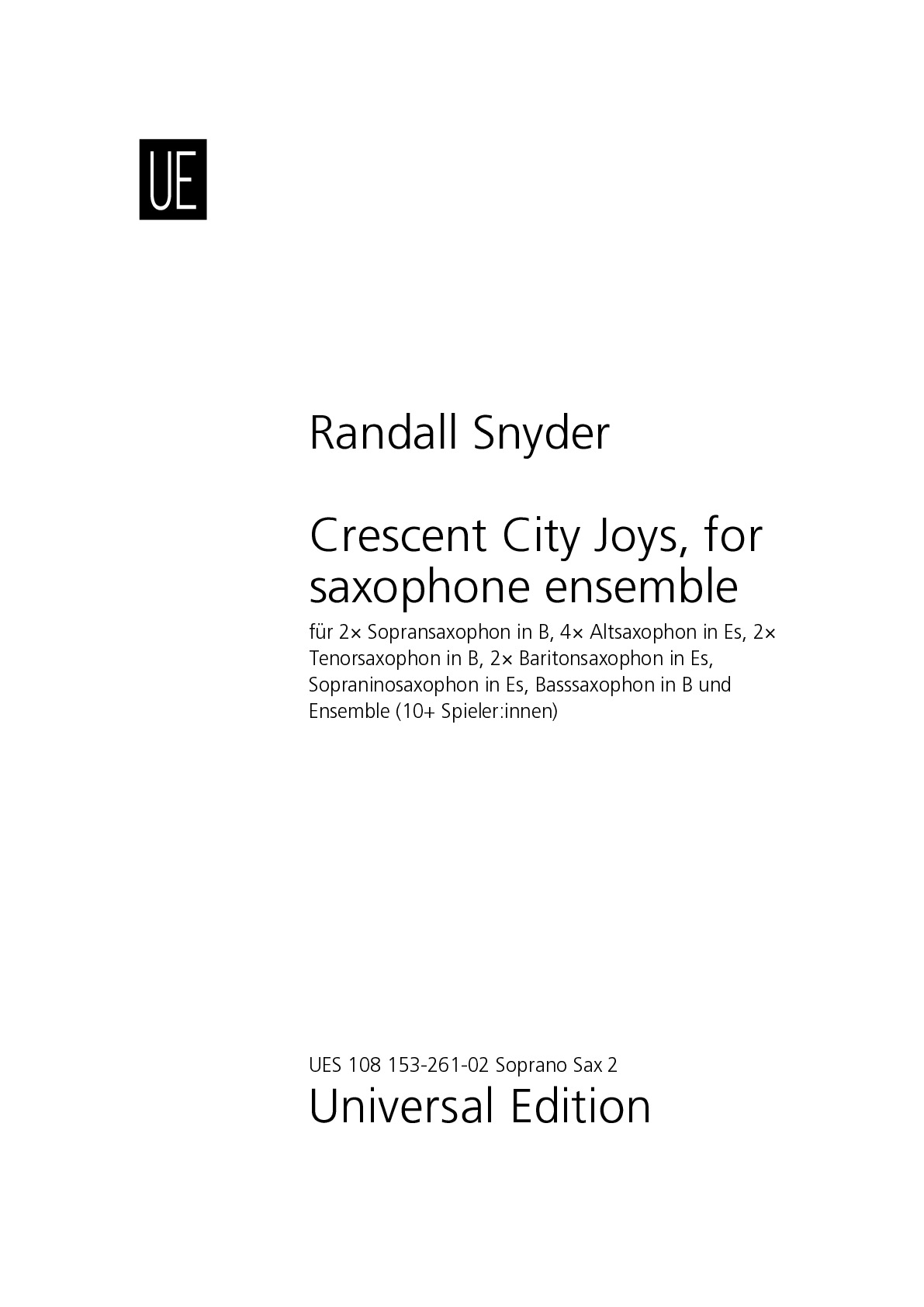
Randall Snyder
3. Sopransaxophon in B (Crescent City Joys, for saxophone ensemble)Type: Solostimme(n)
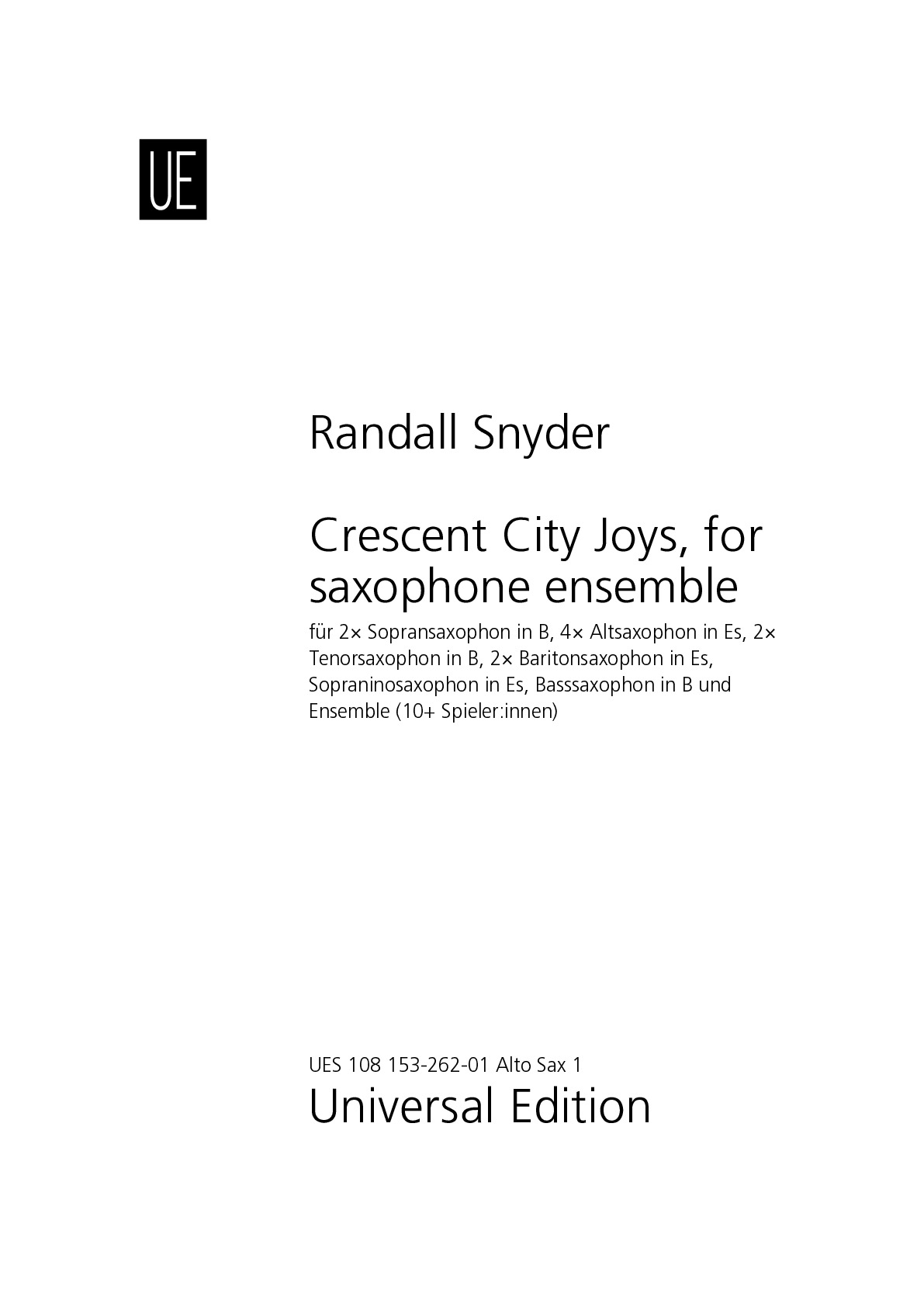
Randall Snyder
4. Altsaxophon in Es (Crescent City Joys, for saxophone ensemble)Type: Solostimme(n)
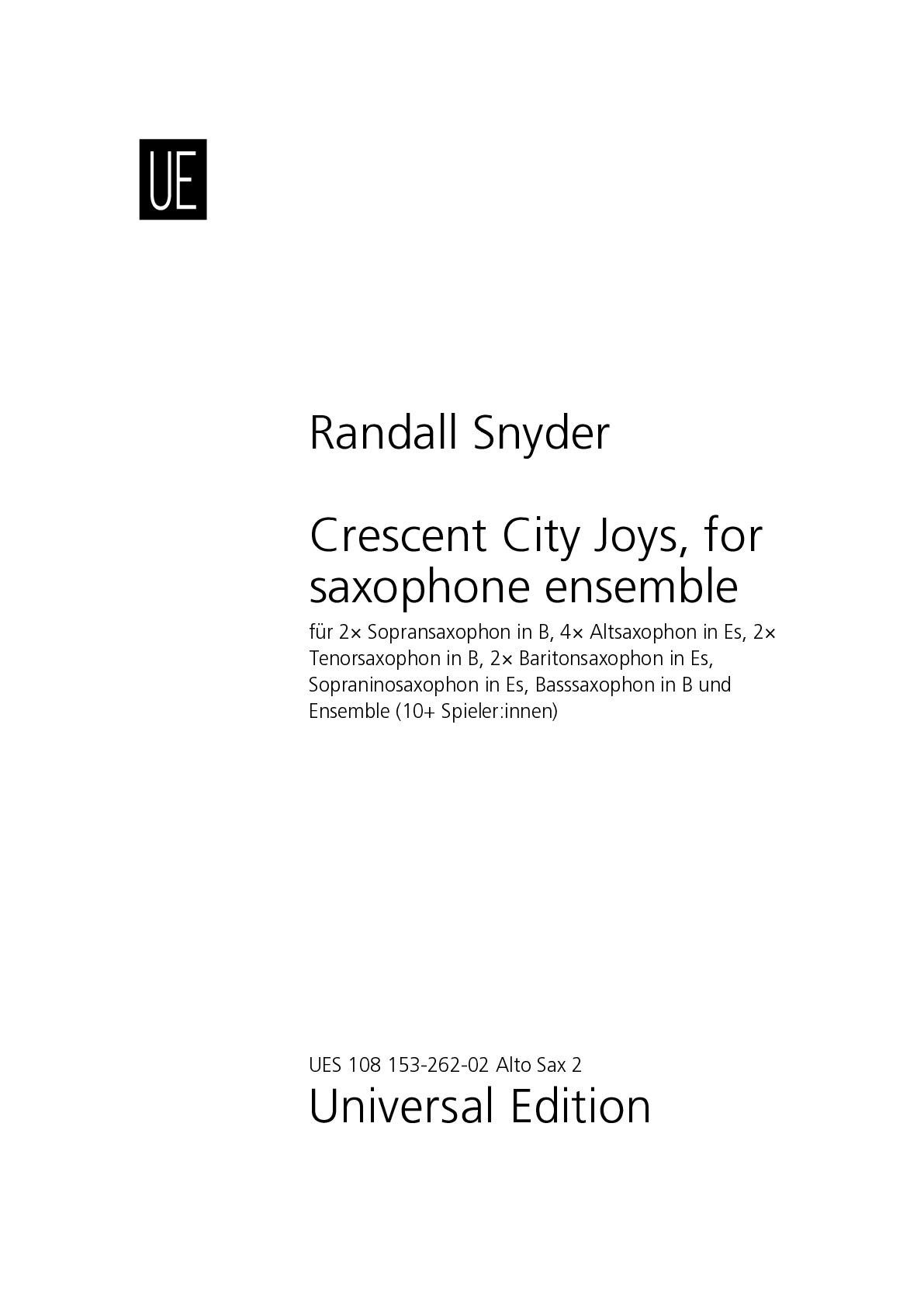
Randall Snyder
5. Altsaxophon in Es (Crescent City Joys, for saxophone ensemble)Type: Solostimme(n)
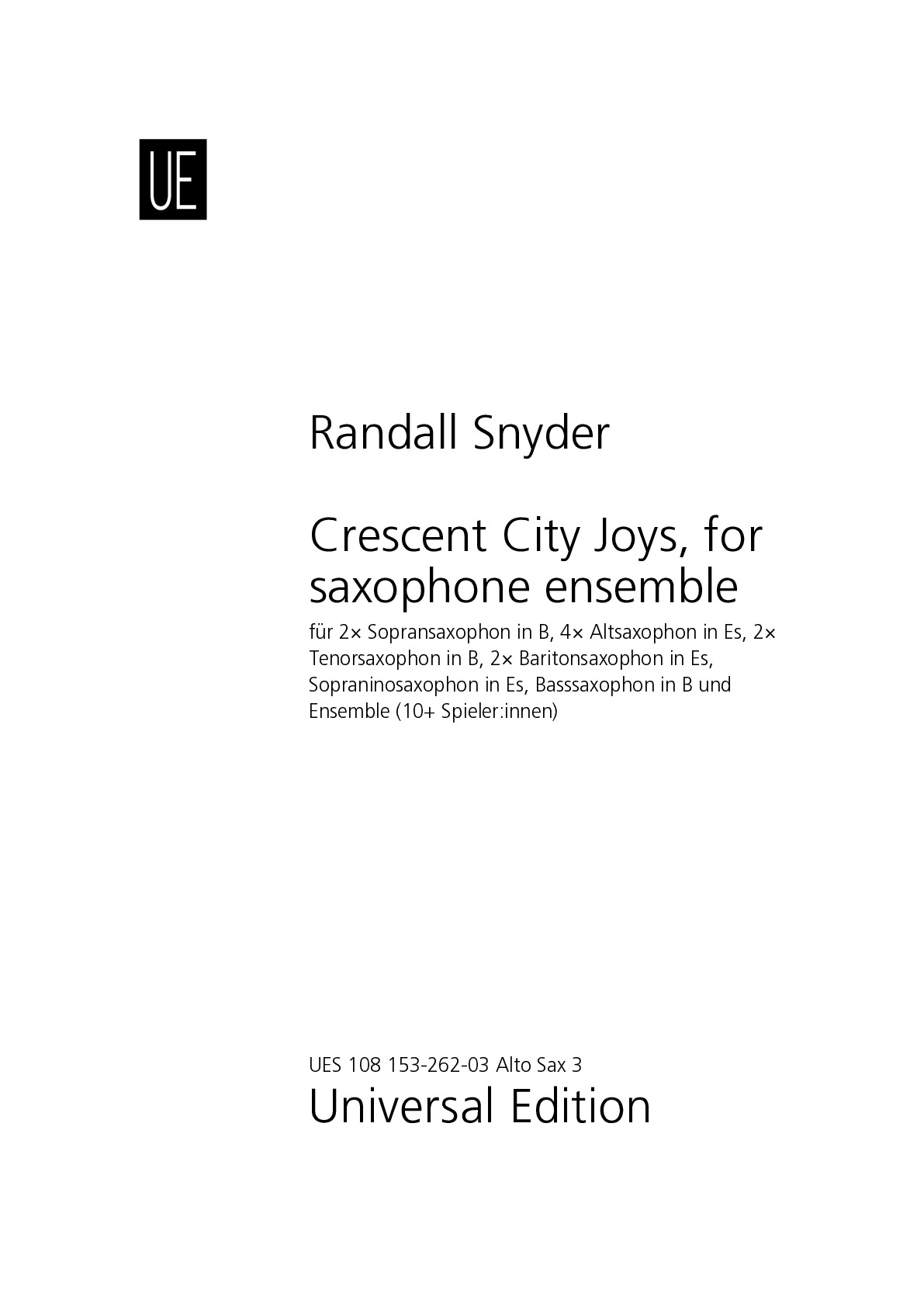
Randall Snyder
6. Altsaxophon in Es (Crescent City Joys, for saxophone ensemble)Type: Solostimme(n)
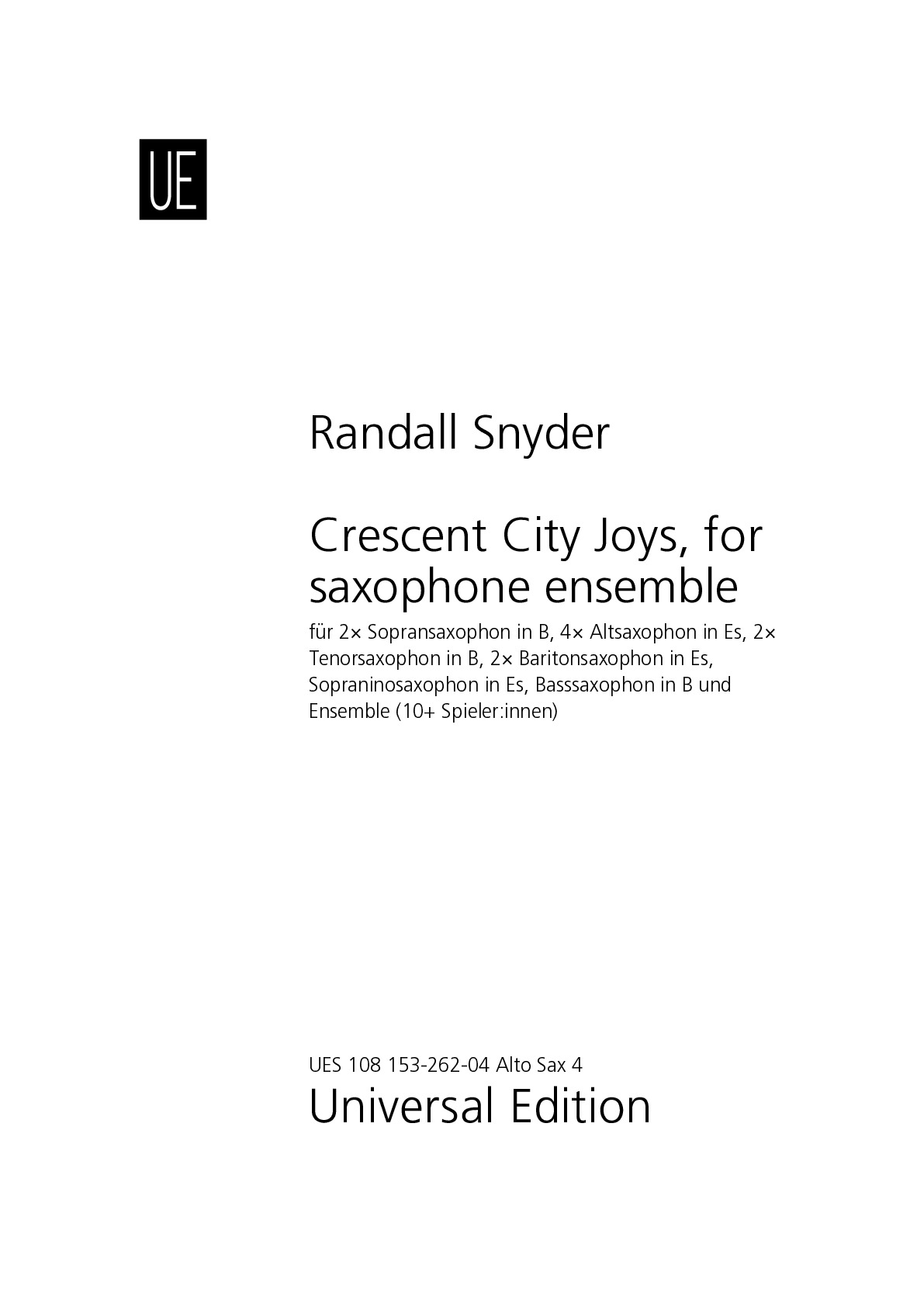
Randall Snyder
7. Altsaxophon in Es (Crescent City Joys, for saxophone ensemble)Type: Solostimme(n)
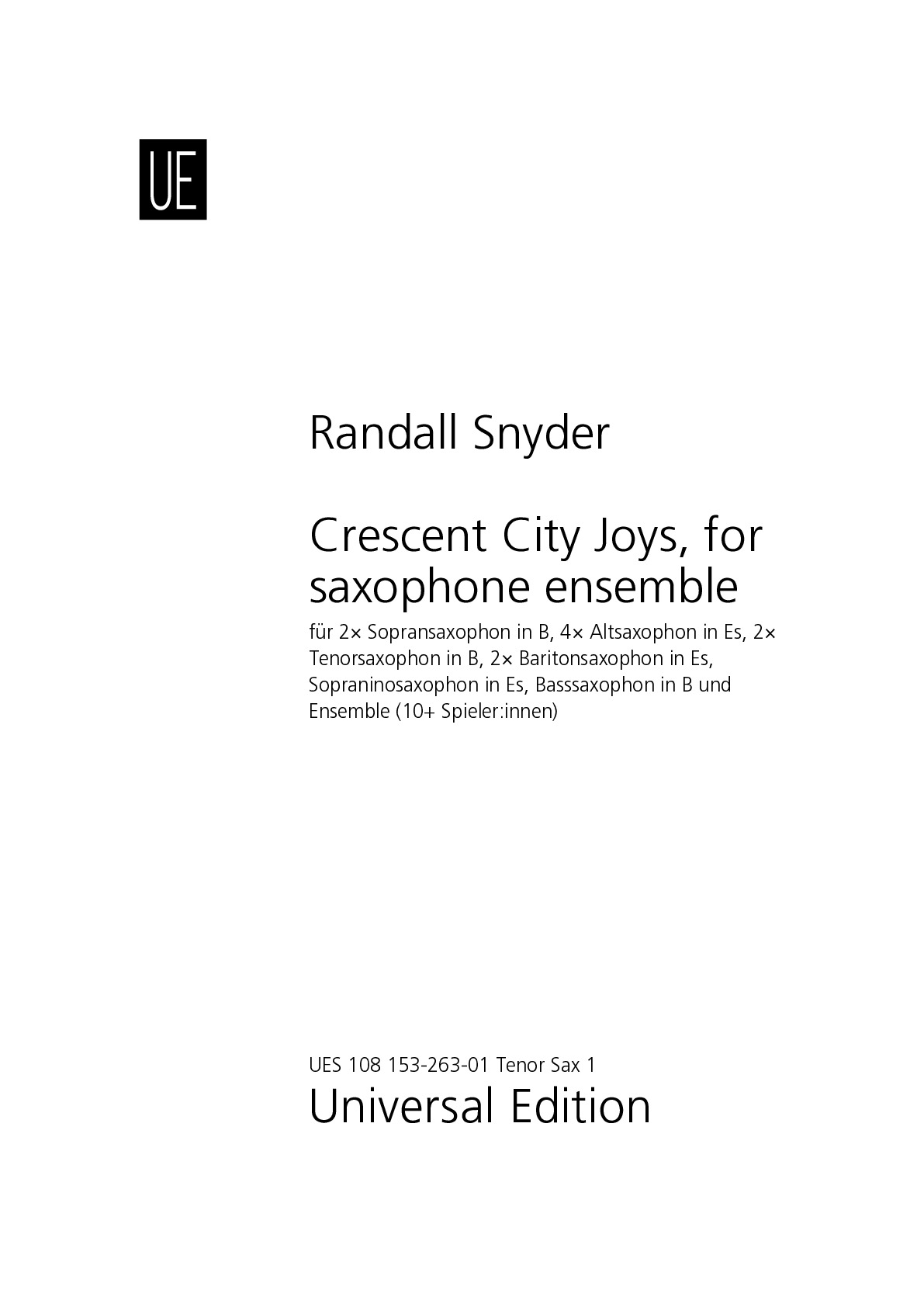
Randall Snyder
8. Tenorsaxophon in B (Crescent City Joys, for saxophone ensemble)Type: Solostimme(n)
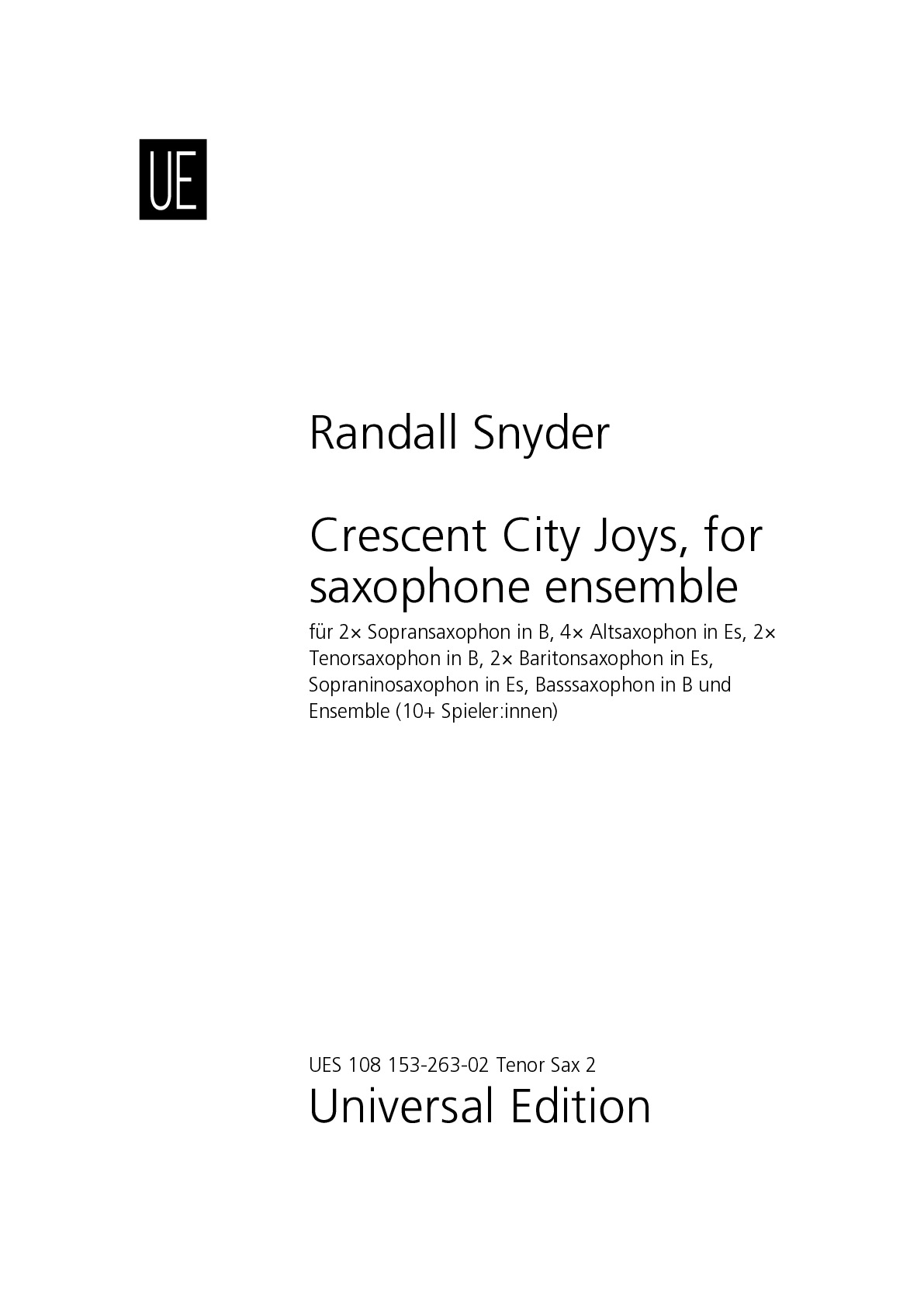
Randall Snyder
9. Tenorsaxophon in B (Crescent City Joys, for saxophone ensemble)Type: Solostimme(n)
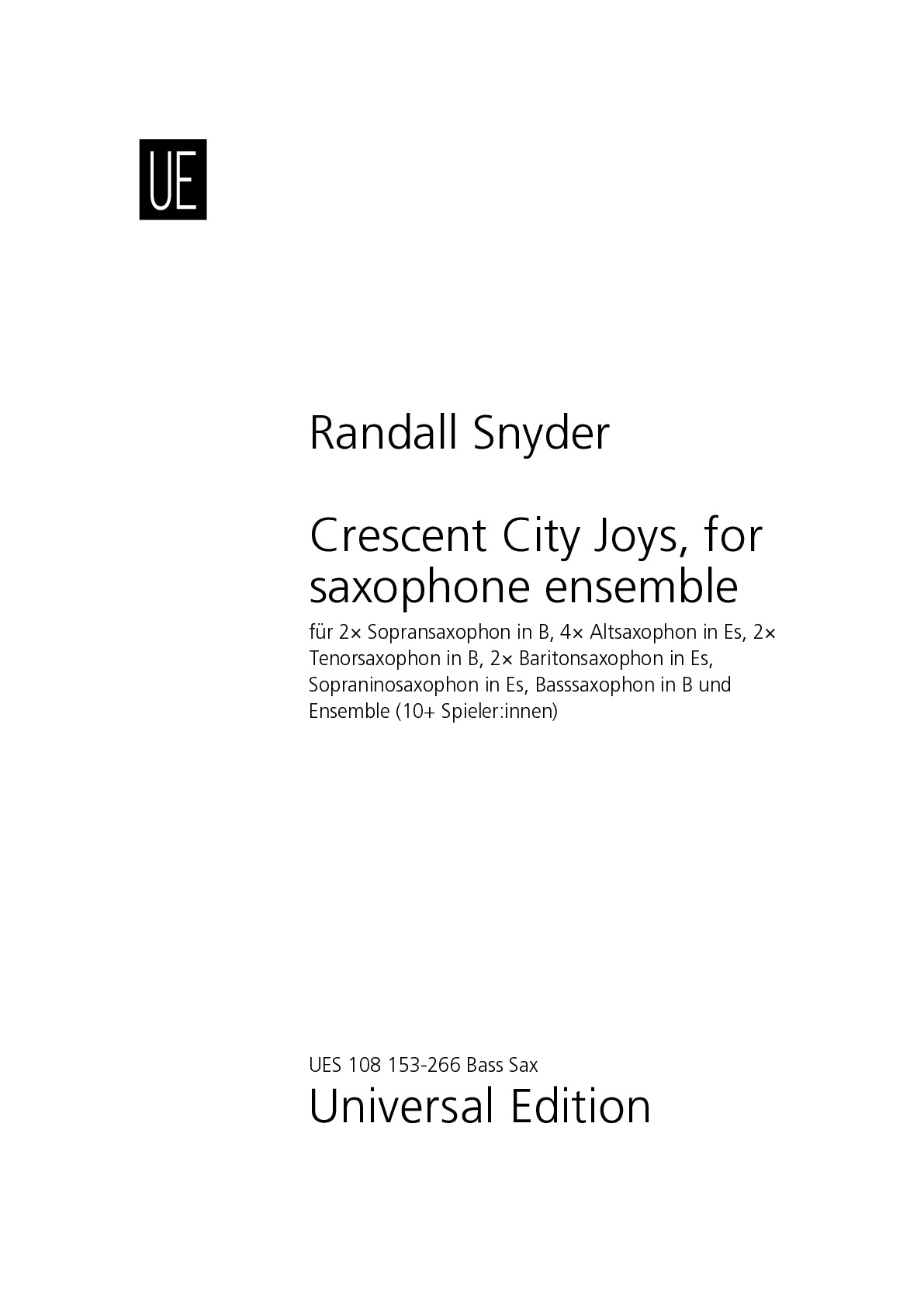
Randall Snyder
Basssaxophon in B (Crescent City Joys, for saxophone ensemble)Type: Solostimme(n)
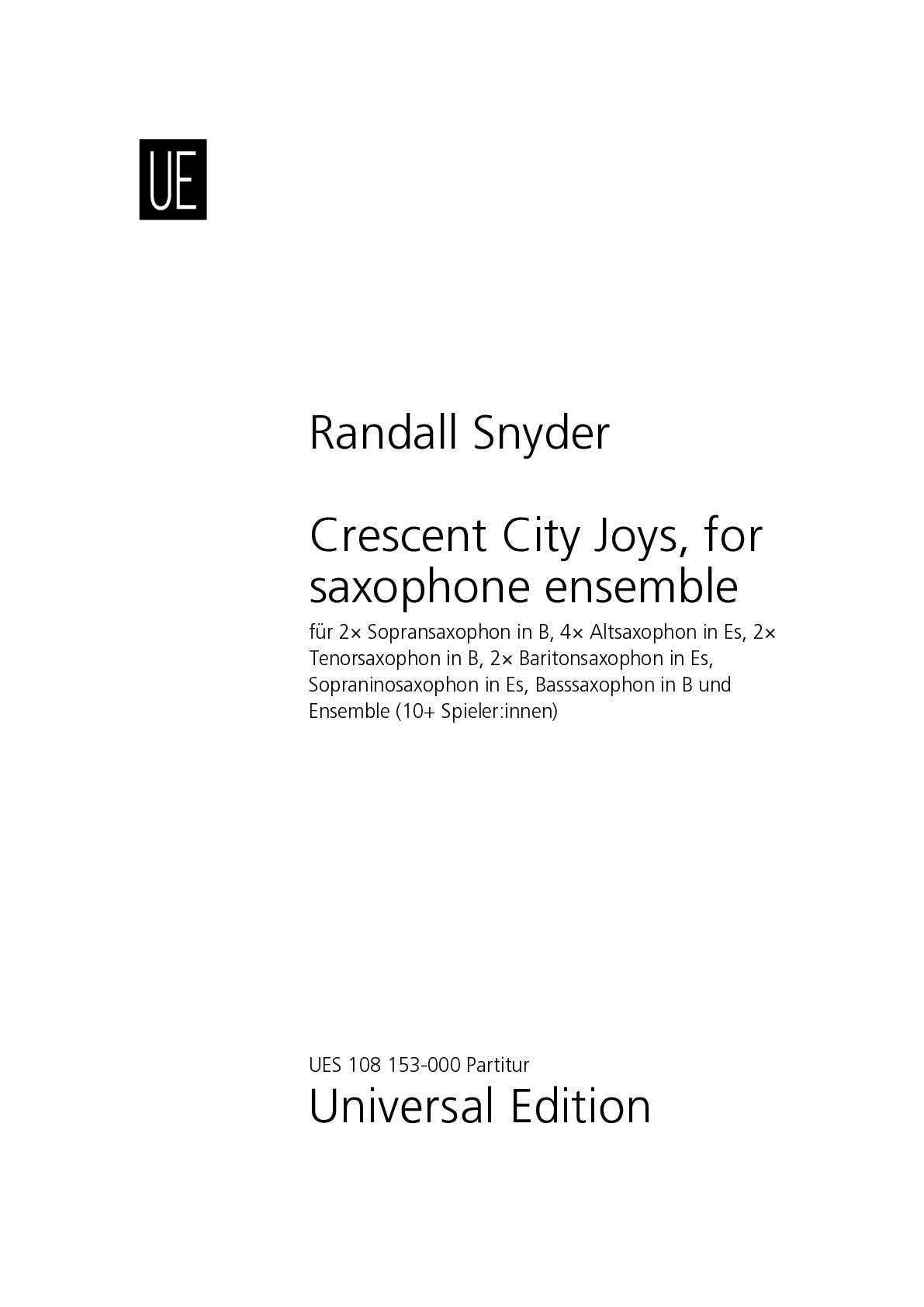
Randall Snyder
Crescent City Joys, for saxophone ensembleType: Dirigierpartitur
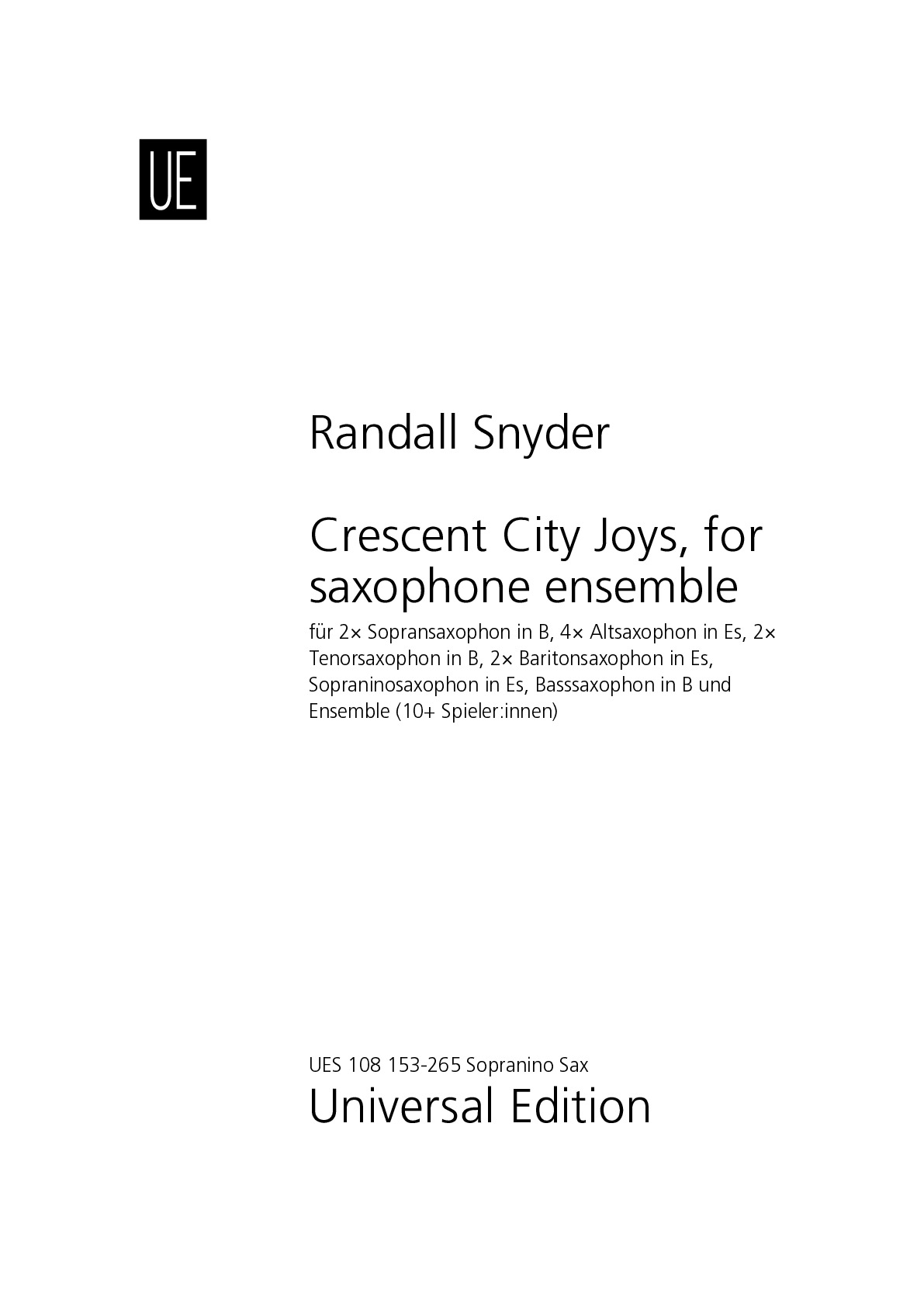
Randall Snyder
Sopraninosaxophon in Es (Crescent City Joys, for saxophone ensemble)Type: Solostimme(n)
Sample pages
Audio preview
Work introduction
This piece is a reimagining of traditional classic jazz and ragtime played in and around
New Orleans at the beginning of the 20th century. It features several breakdowns -
an instrumental form featuring a series of short solos; an example of this is "Chicago
Breakdown", recorded in 1928 by Louis Armstrong the Hot Seven.
The title references Jelly Roll Morton's "Milneburg Joys", later recorded by the New Orleans Rhythm Kings
as "Milenburg Joys".
